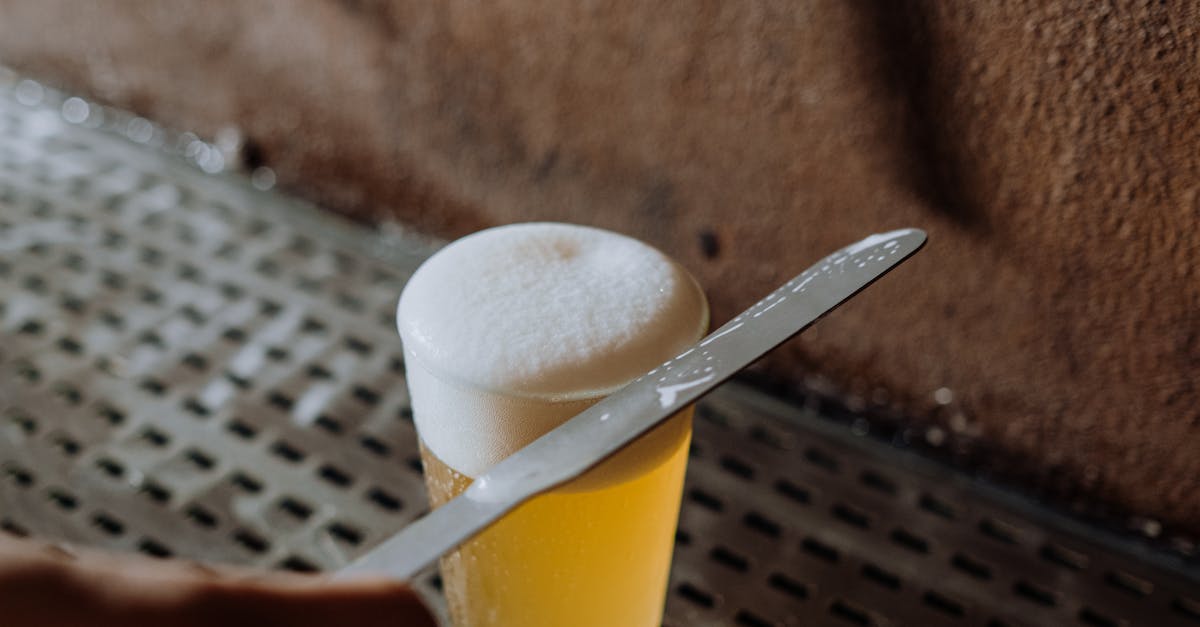November 23, 2024

Beer lovers, rejoice! The craft beer scene has exploded in recent years, transforming the way we think about and enjoy our favorite brews. Gone are the days when your only options were mass-produced lagers. Now, we're living in a golden age of beer, with microbreweries popping up in every corner of the country.
But what's driving this craft beer revolution? It's simple: people want more flavor, more variety, and more authenticity in their drinks. Craft brewers are answering that call, creating unique and innovative beers that challenge our taste buds and expand our horizons.
Craft beers stand out from their mass-produced counterparts in several ways:
These factors combine to create beers that are not just drinks, but experiences. And beer enthusiasts are eating (or should we say, drinking) it up.
The craft beer boom isn't just good news for beer lovers - it's also having a significant impact on local economies. Microbreweries are creating jobs, attracting tourists, and revitalizing neighborhoods. In many cities, former industrial areas are being transformed into vibrant brewery districts, complete with taprooms, beer gardens, and food trucks.
This economic boost is particularly welcome in smaller towns and rural areas, where craft breweries can become major employers and tourist attractions. It's not uncommon to see beer enthusiasts planning entire vacations around visiting different microbreweries and sampling their offerings.
Despite their growing popularity, craft breweries face several challenges:
One often overlooked challenge is managing the day-to-day operations of a brewery, especially when it comes to customer service. Many small breweries struggle to keep up with phone calls for orders, reservations, and inquiries. This is where technology can make a big difference. For instance, our 24/7 AI Phone Agent at loman.ai can handle calls, take orders, and book reservations, allowing brewery staff to focus on what they do best - making great beer.
So, what's next for the craft beer industry? While it's impossible to predict the future with certainty, several trends are emerging:
One thing's for sure: the craft beer revolution shows no signs of slowing down. As consumers continue to seek out new and exciting flavors, microbreweries will keep pushing the boundaries of what beer can be.
As the craft beer industry grows, technology is playing an increasingly important role. From brewing software that helps maintain consistency to apps that help beer lovers find new brews, tech is transforming every aspect of the industry.
One area where technology is making a big impact is in customer service. Many small breweries struggle to keep up with phone calls, especially during busy times. This is where AI-powered solutions like our 24/7 Phone Agent at loman.ai can be a game-changer. By handling calls, taking orders, and booking reservations, these tools free up staff to focus on brewing and serving great beer.
The craft beer revolution has transformed the way we think about and enjoy beer. From small-town taprooms to urban brewery districts, microbreweries are creating unique, flavorful beers and building strong communities in the process. While challenges remain, the future looks bright for craft beer enthusiasts and brewers alike.
As the industry continues to evolve, embracing new technologies and innovative approaches will be key to success. Whether it's using AI to improve customer service or experimenting with new brewing techniques, the most successful microbreweries will be those that can balance tradition with innovation.
Craft beers are typically produced by small, independent breweries using traditional brewing methods and high-quality ingredients. They often feature unique flavors and styles not found in mass-produced beers.
As of 2021, there were over 8,000 craft breweries operating in the United States. This number has been steadily increasing over the past decade.
India Pale Ale (IPA) remains the most popular style of craft beer, known for its hoppy flavor and higher alcohol content. However, there's growing interest in a wide range of styles, from sour beers to barrel-aged stouts.
Starting a microbrewery requires careful planning, significant investment, and a deep understanding of both brewing and business. It's important to research local regulations, develop a solid business plan, and consider factors like location, equipment, and distribution before getting started.

Enter your information in the form to receive a call from Loman and place an order like a customer would!